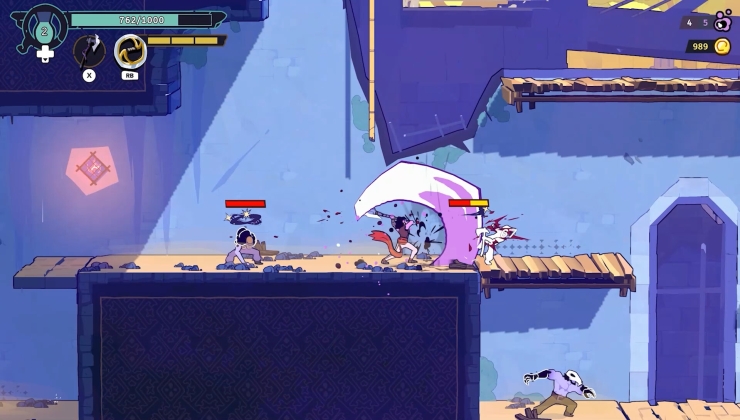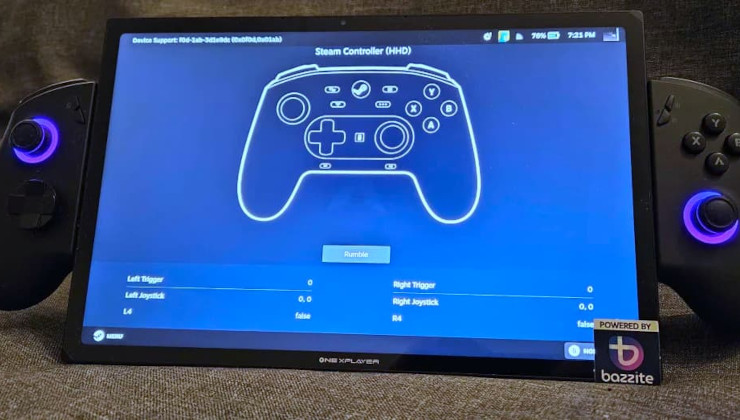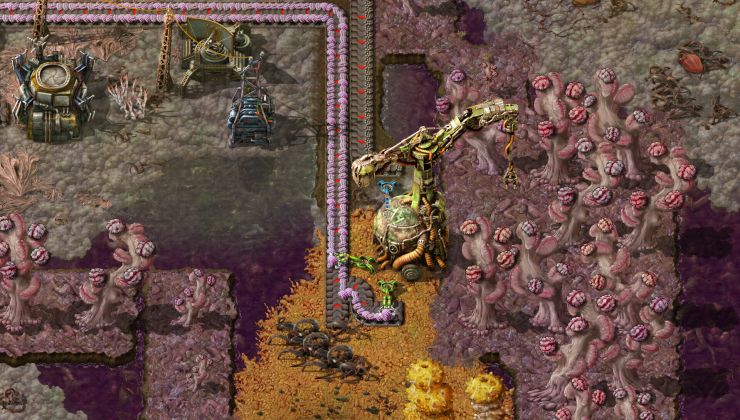Recently it was noticed that users on more bleeding-edge Linux distributions that updated saw Easy Anti-Cheat no longer working on Linux, the culprit was glibc and now a Valve developer has spoken out about it.
Writing in a small thread on Twitter, Valve developer Pierre-Loup Griffais said:
Unfortunate that upstream glibc discussion on DT_HASH isn't coming out strongly in favor of prioritizing compatibility with pre-existing applications. Every such instance contributes to damaging the idea of desktop Linux as a viable target for third-party developers.
Our thoughts on the topic from this prior compatibility issue in BlueZ apply more than ever: https://github.com/bluez/bluez/commit/35a2c50437cca4d26ac6537ce3a964bb509c9b62#commitcomment-56028543
It is unfortunately yet another entry in a growing list over the years.We understand that working with a focus on compatibility requires more resources and more engineering trade-offs, but strongly believe it is nonetheless the way to go. We are very interested in helping with any underlying resource constraints.
This prompted CodeWeavers (who work on Wine and with Valve on Proton) developer Arek Hiler to write a blog post titled "Win32 Is The Only Stable ABI on Linux" and their ending statement is something people should think on:
I think this whole situation shows why creating native games for Linux is challenging. It’s hard to blame developers for targeting Windows and relying on Wine + friends. It’s just much more stable and much less likely to break and stay broken.
Hiler certainly isn't the only one to think like that, with another CodeWeavers developer Andrew Eikum mentioning on Hacker News some time ago:
As a long-time Linux dev (see my profile), I have also found this to be true. Linux userland APIs are unstable and change all the time. Some transitions that come to mind that have affected me personally: ALSA->pulse; libudev->libudev2->systemd; gstreamer 0.10->1.0. All of those changes required modifications to my software, and the backwards-compat tools that are provided are buggy and insufficient. Meanwhile, you can still write and run winmm[1] applications on Windows 10, and they will work in almost all cases. It's simply the case that the win32 API is more stable than Linux userland APIs, so it's entirely plausible that games will run better in Wine, which shares that stable ABI, than they will on Linux, especially as time goes on and Linux userland shifts yet again.
[1] winmm dates to the Windows 3.x days!
Situations like this can be pretty messy and this is not a case of open source versus secret closed source anti-cheat stuff either, since the glibc issue affected a Native Linux game (Shovel Knight) and Linux software libstrangle. No doubt there are other things yet to be discovered that were broken by the change.
It is of course also a case that Linux distributions need to ensure they do quality assurance testing, especially for gaming which can end up showing up issues quite easily and that bleeding-edge distributions can and clearly do end up breaking things by pulling new software in so quickly.
QuoteWe are very interested in helping with any underlying resource constraints.i understand that those projects need funding, but didnt that create an incentive to create problems so they can charge for an solution? not only on that project, but in others that listen that there is money to be made on breaking stuff...
QuoteMeanwhile, you can still write and run winmm[1] applications on Windows 10, and they will work in almost all cases. It's simply the case that the win32 API is more stable than Linux userland APIs, so it's entirely plausible that games will run better in Wine, which shares that stable ABI, than they will on Linux, especially as time goes on and Linux userland shifts yet again.
i said that a loong time ago, and people insisted that i was wrong.
hell even linus torvalds complained about this.
i wonder how the world would look like if we didnt had windows and as result wine, or how it will look like if windows die in the future, and if it didnt had consoles, retro gaming would be history...
Quoting: BeamboomQuoting: EikeQuoting: BeamboomQuoting: 1xokThis whole criticism from CodeWeavers developers should be taken with a pinch of salt...... Why?
Because WINE is where their money comes from?
It's not like they're a neutral party in this question...
I see nothing wrong or biased in what they said.
New releases of WINE/Proton breaks games that worked with the older version from time to time so yes they are wrong in that WIN32 is the only stable ABI on Linux since it clearly isn't stable. There is a reason why Steam still have several versions of Proton since 3.7 available to choose from.
Quoting: landeelglibc compatibility has been a pain for a while.
I have released 2 games on Steam with native Linux ports.
I'm always afraid of doing a dist-upgrade, because it's very likely the compiled binaries won't run on the previous distro version.
It's absurd, but targeting win32 is more stable.
There should be a way to have multiple working glibc versions.
There are, you can also in your code tell a new version of GLIBC that you want the function from the older version X since GLIBC uses versioned symbols and keep the old ones around since they started to do that. It's a very painful process though since one have to do this for every single symbol one want's to use.
Quoting: KlaasNo. I won't RTFM either.Quoting: Purple Library GuyUm, how many of these other thingies are we typically talking about existing at a time?Run ldd on a binary and count the number of libraries that are referenced.
In any case, would that tell me much about the total system usage?
Last edited by Purple Library Guy on 17 August 2022 at 6:11 pm UTC
Quoting: minidouQuoting: GuestQuoting: minidouI fail to see how glibc devs could be blamed for removing a function deprecated for 17 years (though I can agree a major version bump should have been called for). Do videogame devs need that much nursing ? EAC linux lib is a recent piece of software, how many deprecated dependencies do they use ?The blame is not really about removing the deprecated feature. Blame is for the failure to restore it after discovering that users for the feature still exist and the removal broke stuff.
They did restore it because of the backlash, but they really shouldn't have, there's no reason for it. This isn't some obscure lib we're talking about but the GNU C library. If a handful of program gets broken it's on them, the function was marked deprecated almost two decades ago. An outstanding majority of program have no issue at all with the removal of this function, why should a niche but maybe high visibility user dictate the direction of glibc ?
Something not discussed here is that the removal of DT_HASH allows a save of about 1% or 16kB of space per Glibc shared object. This is an improvement. There clearly is a good reason for finally removing this deprecated function. But we shouldn't profit from this improvement because of some devs bad practice ?
Quoting: TheSHEEEPQuoting: GuestThe blame is not really about removing the deprecated feature. Blame is for the failure to restore it after discovering that users for the feature still exist and the removal broke stuff.Yes, a lot of developers (especially newer, younger ones that lack the experience) argue in favor of always using the very latest everything and always keeping everything updated.
I've seen that time and time again in several teams.
But that's not a position that can be maintained in reality.
You'd require armies just to maintain old stuff.
It's fine to remove a function if you can't see that anyone is using it. An understandable mistake.
This is off topic. The impacted softwares were initialised years after DT_HASH was marked deprecated. In the case of EAC lib, probably a good 15 years later. In every sector of the software industry this would be considered bad practice, but VG softwares get a pass for some reason.
Quoting: TheSHEEEPBut the moment you realize that there were indeed many still using it, it should clearly be restored (with a deprecation marker, but still).
They did that, almost two decades ago.
And it seems there isn't that many users impacted. I can count the EAC lib and some lib used in shovel night. Compared to the millions of programs using glibc.
I'm also wondering if this opens a hole in EAC. Aka since they only seems to check DT_HASH then I can craft a .so that have a nice DT_HASH for EAC to be happy about and then I create my real stuff in the DT_GNU_HASH section that is what the system really loads instead. Now I have never played around with low level linking like this so I don't know if this is possible, but it sure sounds like it.
Quoting: JpxeAlso isn't this the the same on iOS, Android and macOS. Aren't they always changing things and "breaking" backwards compatibility? They still seem to be a very viable target for third-party developers.Apple products also suck balls. Criticism of Linux is still valid.
With that said, what prevents all games from shipping old system libraries?
Quoting: Purple Library GuyIn any case, would that tell me much about the total system usage?Only if you do that for everything that you use (ignoring duplicates). It's very hard to estimate as it hugely varies between programs and obviously the number of programs that you use simultaneously.
The upper bound is the number of unique files in /usr/lib, although that should overshoot the real number by a huge amount.
QuoteSituations like this can be pretty messy and this is not a case of open source versus secret closed source anti-cheat stuff either, since the glibc issue affected a Native Linux game (Shovel Knight) and Linux software libstrangle. No doubt there are other things yet to be discovered that were broken by the change.
Not entirely accurate as if the games themselves were also open source, they can be modified and compiled with fixes to deprecated stuff and use new features. This is why Stallman has always said that games would be better to use open source engines, and could have proprietary data.
I will have to read up on the rest of the thoughts, and why some function was removed / changed in libc.
Also, while Wine is fantastic at getting windows of all versions to work under Linux, Windows itself may still 'support' some old stuff, but that doesn't mean some of the implementations still work in Windows 10/11.
Look at all the SafeDisk stuff that will no longer work without dubious cracks.
If an application requires qn older "base" or an older libraries, shims should be provided, and that should be exercised with tests.
Of course, that requires a substantial ammount of effort :/









See more from me